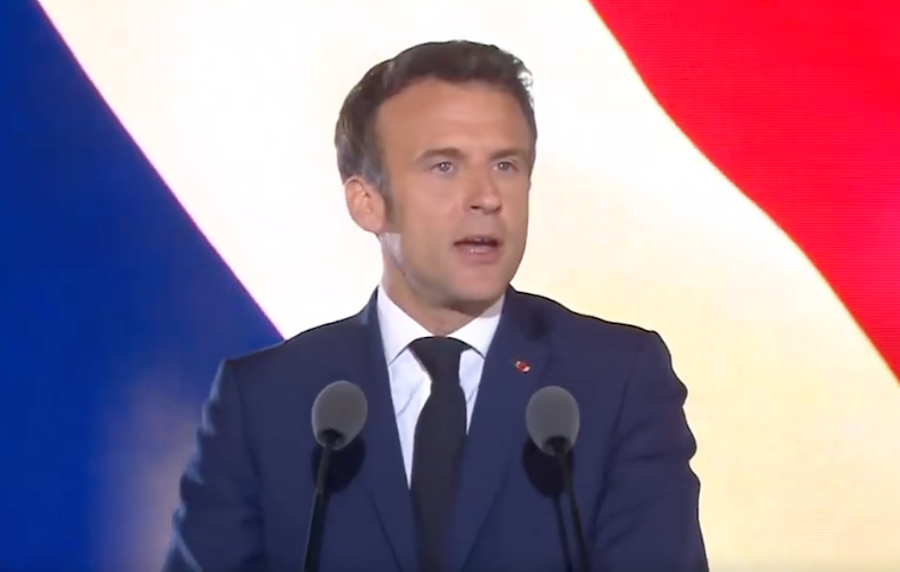Emmanuel Macron has succeeded in securing a re-election victory, making him the first governing president of the Fifth Republic ever to do so. Now that he’s officially won though he faces a steep path ahead with a nation at odds, an economy in flux, and an upcoming parliamentary election that could still potentially render him impotent.
It was a close call in the Alpes-Maritimes department, where Macron narrowly secured a majority of 50.1%. Le Pen, however, took the majority in the neighbouring Var department with 55.1% of the vote. Macron’s strongest support came from the northern department of Yvelines, where 71% of voters backed the incumbent.
Photo taken from President Emmanuel Macron’s reelection speech on Sunday night
